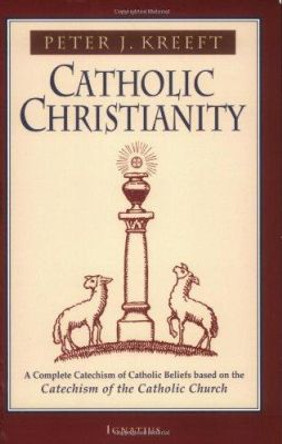Description
The religious education of children represents a critical component of the Catholic Reformation that has often been overlooked by historians of early modern Europe. In Creating Catholics: Catechism and Primary Education in Early Modern France, Karen E. Carter examines rural schooling in France in the seventeenth and eighteenth centuries-the period when community-supported primary education began-and brings to light a significant element of the early modern period.
Carter scrutinizes Catholic religious education in rural parishes in France through its two leading forms: the explosion of Catholic catechisms for children and their use in village schools. She concentrates on educational opportunities for rural peasants in three French dioceses: Auxerre (in Burgundy) and Chalons-sur-Marne and Reims (in Champagne). Carter argues that the study of catechism in village schools was an integral part of a comprehensive program, implemented by both clerical and lay leaders, for the religious, ethical, and moral education of children. Her research demonstrates that the clergy and a majority of the lay population believed in the efficacy of this program; for this reason, parish priests taught catechism in their parishes on a weekly basis, and small village communities established and paid for a surprisingly large number of local schools so that their sons and daughters could receive an education both in basic literacy skills and, through memorization of catechism, in Catholic faith and practice.
About the Author
Karen E. Carter is assistant professor of history at Brigham Young University.
Reviews
"Karen Carter examines catechisms and visitation records from multiple dioceses to explore why, by the time of the French Revolution, French Catholics knew-and zealously embraced-'the doctrines and behaviors of their religion.' . . . contributes significantly to our understanding of early modern history and offers a model for effective catechesis today." -First Things
"Aside from the impressive amount of research that underpins this book, Carter should be commended for its engaging style and organization . . . . [It is] a broad ranging and original piece of research that transforms our understanding of primary education in France and the dynamic process that underpinned the dissemination of the Catholic Reformation into rural communities in the seventeenth and eighteenth centuries." -H-France Review
"The author's central thesis that the Catholic Reform cannot simply be understood as primarily a seventeenth-century development and as a 'top-down process of institutional reform' is a compelling corrective to quietly accepted historiographical assumptions." -The Catholic Historical Review
"In convincingly demonstrating the agency of both lay and clerical Catholics in this domain, Carter adds to the growing body of evidence that discounts the definition of confessionalisation as a process of social disciplining imposed by the institutional authority of the Church and the State." -Ecclesiastical History
"By using an impressive number of catechisms and parish records, Carter is able to argue that seventeenth- and eighteenth-century Catholic educational practice, seen in its own context, was neither backward nor reactionary but engaged with contemporary understandings of hierarchy and social order, and organized its teaching to respond to the needs and expectations of both lay people and clergy. . . . Creating Catholics offers readers a valuable, detailed, and well-written inquiry into early-modern catechesis and education." -American Historical Review
"This is a very enriching book for any student both of the period of French History between the Religious Wars and the French Revolution as well as for any mission historian of the French Missionary Movement of the 19th century." -Missiology: An International Review
"Carter's insightful book explores the evolution of primary education in rural France across the seventeenth and eighteenth centuries. . . . While the book addresses the historical debates on reformation and education, scholars of rural life, education, childhood, and family life will also find it of great interest." -Religious Studies Review
"Carter's tale is fundamentally about the advancement of catechetical education in the French Church in the seventeenth and eighteenth centuries. . . . it is in Carter's exploration of early modern primary education in Auxerre, Chalons-sur-Marne, and Reims, that she makes her most provocative claims." -New Perspectives on the Eighteenth Century
"Elegantly written and persuasively argued, Creating Catholics is divided into two main parts. The first examines diocesan catechisms used throughout seventeenth- and eighteenth-century France, while the second, somewhat lengthier part analyzes primary education in the three dioceses under investigation. The author thus situates her discussion in dialogue both with historians of early modern religion and with historians of education." -The Journal of Modern History
"[Creating Catholics] is well-written, carefully argued, clearly organised, is steeped in its documentary sources and it has a substantial bibliography. For scholars it offers an important nuancing of our understanding of how a central discipline of the Catholic Reformation played out locally in France up to the period of the French Revolution." -The Heythrop Journal
"This is a well written and entertaining study that is to be commended for treating lay Catholics as active rather than passive consumers of the Counter Reformation." -European History Quarterly
Book Information
ISBN 9780268023041
Author Karen E. Carter
Format Paperback
Page Count 328
Imprint University of Notre Dame Press
Publisher University of Notre Dame Press
Weight(grams) 445g
Dimensions(mm) 229mm * 152mm * 18mm





